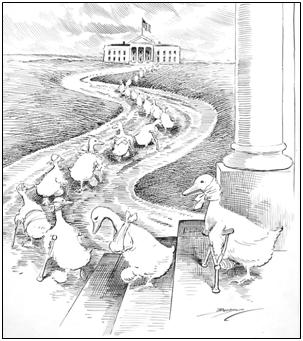President Obama’s lame duck free bird session officially begins when Republicans take control of both Congressional chambers in December, and he isn’t wasting any time to force his no-consequences agenda on the American public who voted against it barely two weeks ago.
Barack Obama is finally ready to whip his “pen and phone” from their respective holsters and take action to make sure illegal immigrants from South American countries face no consequence for breaking immigration laws.
He did nothing on immigration during his first two years when his own party controlled Congress. He’s shown no interest in negotiating with Conservatives to pass even piecemeal, consensus legislation in the four years since.
And now, freed from the shackles of public opinion and impending elections, Barack Obama has decided that he’s waited long enough for the people’s Representatives to capitulate to his every demand for comprehensive reform, and will now grant himself powers that no President of the United States was ever intended to have.
While it’s true that more power rests in the executive branch today than any time in America’s history, there are still Constitutional restrictions that must be in place before our representative democracy adjusts to a democratic presidential government. The Constitution established a system of government, but it was always up to us, the citizens, to maintain it.
As a nation of laws, the substance of this new question from Obama’s executive orders boils down to law. Specifically, does the President of the United States, as the nation’s chief executive with the responsibility of faithfully executing and enforcing laws passed by the people’s Representatives, have the power to not enforce the law of the land?
It is an important question and one that must swiftly be decided by two groups of checks on the President:
First, the Supreme Court must swiftly rule on a case (such as the pending King v. Burwell) that states explicitly whether the President presently has the Constitutional prerogative to subjugate any portion of the United States Code by edict.
Secondly, if the people of the United States are interested in maintaining their democratic form of representative government, than it is incumbent upon them to take control of their government. They must make explicitly clear, either by legislation or perhaps even a Constitutional Amendment, that the President does not have to power to nullify the law via non-enforcement.
There are, of course, other ways to stop this particular executive action. But Obama’s overstepped the powers of his office — by a lot. The President’s power needs to be checked, otherwise it can (and almost definitely will) be replicated by any future President seeking to undermine the will of the people and legislate from the Oval Office.
Tom Toth is the digital content director for Americans for Limited Government.







